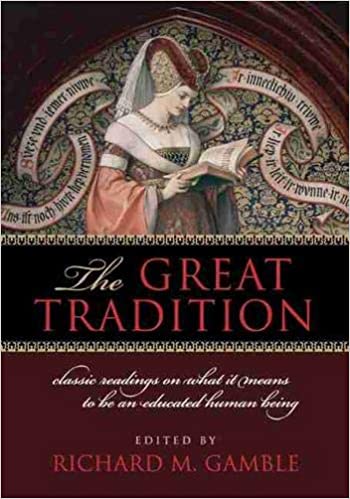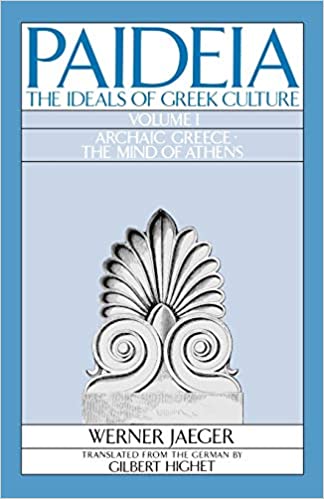The Great Tradition: Classic Readings on What It Means to Be an Educated Human Being
Frustrated with the continuing educational crisis of our time, concerned parents, teachers, and students sense that true reform requires more than innovative classroom technology, standardized tests, or skills training. An older tradition—the Great Tradition—of education in the West is waiting to be heard. Since antiquity, the Great Tradition has defined education first and foremost as the hard work of rightly ordering the human soul, helping it to love what it ought to love, and helping it to know itself and its maker. In the classical and Christian tradition, the formation of the soul in wisdom, virtue, and eloquence took precedence over all else, including instrumental training aimed at the inculcation of "useful" knowledge.
Edited by historian Richard Gamble, this anthology reconstructs a centuries-long conversation about the goals, conditions, and ultimate value of true education. Spanning more than two millennia, from the ancient Greeks to contemporary writers, it includes substantial excerpts from more than sixty seminal writings on education. Represented here are the wisdom and insight of such figures as Xenophon, Plato, Aristotle, Seneca, Cicero, Basil, Augustine, Hugh of St. Victor, Bonaventure, Thomas Aquinas, Martin Luther, John Calvin, Erasmus, Edmund Burke, John Henry Newman, Thomas Arnold, Albert Jay Nock, Dorothy Sayers, C. S. Lewis, and Eric Voegelin.
More info →Paideia: The Ideals of Greek Culture: Volume I: Archaic Greece: The Mind of Athens
Werner Jaeger's classic three-volume work, originally published in 1939, is now available in paperback. Paideia, the shaping of Greek character through a union of civilization, tradition, literature, and philosophy is the basis for Jaeger's evaluation of Hellenic culture.
Volume I describes the foundation, growth, and crisis of Greek culture during the archaic and classical epochs, ending with the collapse of the Athenian empire. The second and third volumes of the work deal with the intellectual history of ancient Greece in the Age of Plato, the 4th century
B.C.--the age in which Greece lost everything that is valued in this world--state, power, liberty--but still clung to the concept of paideia. As its last great poet, Menander summarized the primary role of this ideal in Greek culture when he said: "The possession which no one can take away from man is paideia."
The Paideia of God: And Other Essays on Education
Paul requires Christian fathers to provide their children with a "paideia of the Lord." To the ancient world, the boundaries of paideia were much wider than the boundaries of what we understand as education. Far more is involved in paideia than taking the kids to church, having an occasional time of devotions in the home, or even providing the kids with a Christian curriculum. In the ancient world, the paideia was all-encompassing and involved nothing less than the enculturation of the future citizen. He was enculturated when he was instructed in the classroom, but the process was also occurring when he walked along the streets of his city to and from school.
The idea of paideia was central to the ancient classical mind, and Paul's instruction here consequently had profound ramifications for how we in turn educate our children. In this collection of essays, Douglas Wilson discusses this and other education-related issues.
More info →


